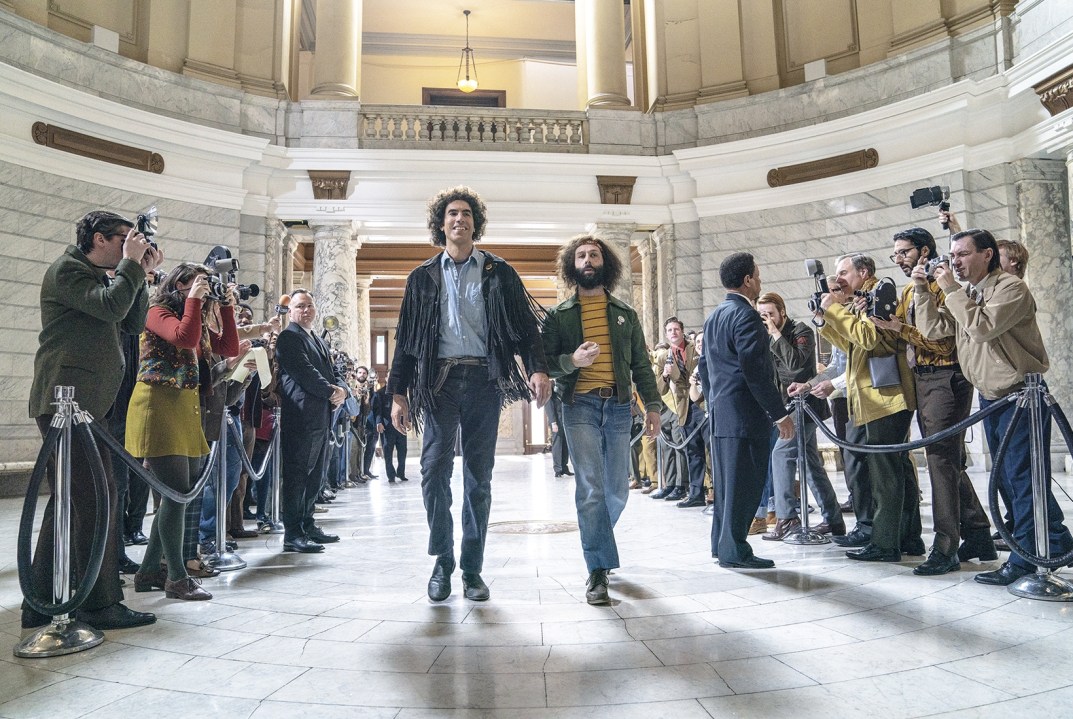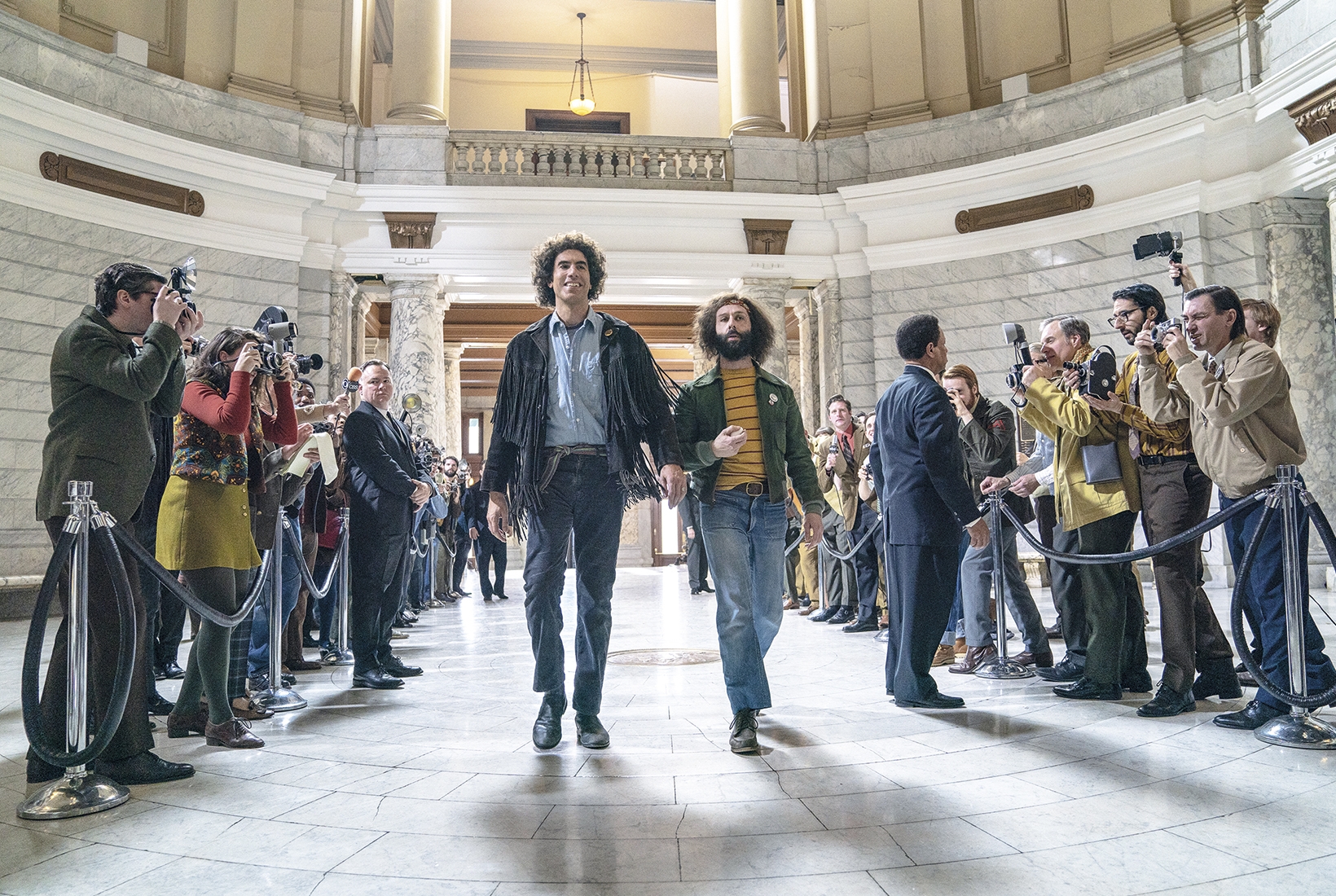Aaron Sorkin’s The Trial of the Chicago 7 — don’t worry, you haven’t missed six earlier films — is a courtroom drama based on true events featuring a stellar cast: Mark Rylance, Frank Langella, Sacha Baron Cohen, Eddie Redmayne, Jeremy Strong. You may be wondering: hang on, no Michael Keaton? But he tips up too! What, no Joseph Gordon-Levitt? Don’t worry. He’s here. But while the performances are ace and the script is one of those Sorkin scripts where the dialogue is one zinger after another — zinger ping pong, I call it — it will leave you cold emotionally. This is a film to admire, in some respects, but it will never make you feel. I wasn’t bothered who did or didn’t go to prison in the end. So long as they just got on with it.
Written and directed by Sorkin, who created The West Wing, and wrote the screenplays for A Few Good Men, Moneyball and The Social Network, among others, this follows the seven anti-Vietnam protestors who were charged with conspiracy and inciting riots at the 1968 Democratic National Convention in Chicago. It may be different for American audiences, who are likely to be more familiar with the major players, but for the first 40 minutes or so of its two-hour running time you may well find yourself scratching your head and asking: which one is that again?
This feels as though it’s Sorkin being smart rather than his characters, who are left by the wayside
The characters are all initially introduced with their names underneath, but it’s done at such a lick it is hard for the information to register. Still, keep with it, as the defendants will eventually become clear. They include the counterculture provocateur Abbie Hoffman (Baron Cohen), his stoner comrade Jerry Rubin (Strong), the political activist Tom Hayden (Redmayne), and pacifist David Dellinger (John Carroll Lynch). The remaining three are minor figures, so let’s keep them as that. As for the lawyers, it’s William Kunstler (Rylance) for the defence and Richard Schultz (Gordon-Levitt) for the prosecution. And presiding over it all is Judge Julius Hoffman (Langella, in splendid form) who doesn’t even pretend to be impartial and is unhinged if not plain mad.
If you are coming to this without prior knowledge, as I did, you will be amazed. There is, at one point, an eighth defendant (Bobby Seale, co-founder of the Black Panthers played by Yahya Abdul-Mateen II), who keeps disrupting the proceedings so Hoffman has him bound and gagged and chained to a chair right there, in the courtroom. It did feel as if Bobby’s story was, ultimately, thrown away in favour of the white dudes, but there you are.
It’s a conventional set-up, narratively, the courtroom scenes interspersed with flashbacks to the riots that tell us how the protesters came to clash so violently with the police. These scenes are helpful but not especially interesting as they lack tension and become repetitive. The far better drama is in the courtroom, with Judge Hoffman shouting ‘contempt’ all over the place, Schultz looking increasingly queasy, and Abbie Hoffman mostly playing the clown. When Judge Hoffman says he wants it noted on the record that he is no relation to Abbie Hoffman, Abbie cries out: ‘No, father, no!’
There are some other great lines as when, for example, one of the minor figures recognises he’s a minor figure, but that’s okay because ‘this is the Academy Awards of protest and as far as I’m concerned it’s an honour to be nominated’. But the script’s clever wit, and quick-fire repartee, leaves the characters by the wayside. Or, to put it another way, it feels as if it’s Sorkin being smart, rather than these people, whom we don’t really learn anything about, and therefore can’t care about. Redmayne’s character, for instance, is purely earnest and nothing more.
We don’t lose sight of the death toll in Vietnam, and the film has something to say about what happens when governments decide to crack down on social dissent, which has to be timely, but we’re mostly here so that Sorkin can be Sorkin. Or that’s how it seemed. Meanwhile, forgot to say: Michael Keaton plays the past attorney general while John Doman — Bruce from The Affair! —plays the current one. Yup, he tips up too.







Comments